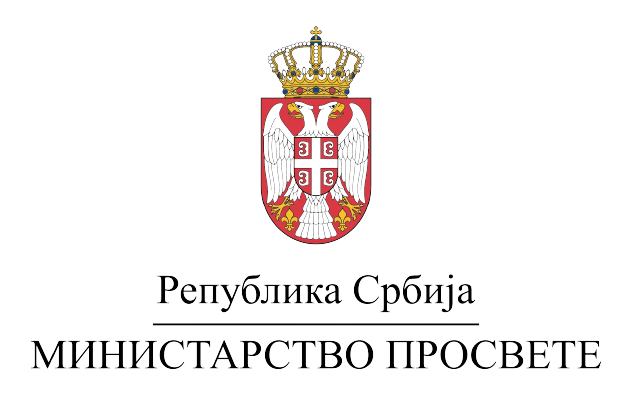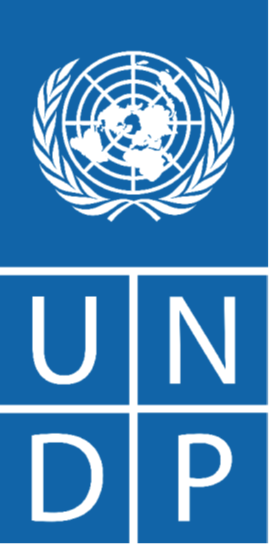Prijavi problem
Obeleži sve kategorije koje odgovaraju problemu
Još detalja - opišite nam problem
Status problema i sve dodatne informacije možete pratiti klikom na link.
Molimo vas da pokušate kasnije.
About Project
There is much discussion about the jobs of the future and how to prepare for them, as well as the skills that today’s primary and secondary school students need to acquire to be competitive in the job market tomorrow. The significance of digital competencies for students in these conversations is becoming increasingly important, regardless of their chosen profession.
Since its establishment in 2017, the Loop Foundation has set the popularization of algorithmic thinking and the introduction of algorithms to the youngest ages as one of its priority goals. Loop's work is best recognized by the wider public through free educational materials for learning computer science in primary and secondary schools, as well as support for competitions, teacher trainings, and other activities in the field of informal education.
Thanks to the support it previously provided to computer science education, the Petlja Foundation has been recognized since 2022 as an important partner to the education system on the project Building the critical computer skills for the future ready workforce. This project is implemented by the United Nations Development Programme (UNDP) in partnership with the Ministry of Education, with the support of the Government of the Republic of Serbia.
The project is based on the premise that the development of digital skills through formal and informal education is essential for performing the jobs of the future and that supporting the education system is a responsibility we all share.
The activities on this project include:
- Modernization and improvement of all open educational resources for learning computer science in primary and secondary schools available on the online platform net.kabinet.
- Creation of new materials for the subject "Digital World."
- Development of educational materials for six specialized IT subjects in dedicated IT departments.
- Conducting training sessions for primary and secondary school teachers.
- Enhancing the functionality of the petlja.org platform for a better user experience.
- Developing the petlja.org platform as an open-source product.
- Developing solutions for applying artificial intelligence in education, such as an AI assistant for teachers.
- Annual organization of an eight-day Summer Programming School for 100 older primary school students.
- Annual three-month online mentoring support for beginners in programming, as well as for those preparing for competitions called rasPETLJAvanje.
- Organizing one-day workshops for teachers and students across Serbia through the Traveling Petlja initiative.
- Conducting STE(A)M challenges for high school students.
- Organizing the conference The World Ahead of Us for teachers, professionals, and decision-makers in the field of education.
Together with project partners, we continue to implement activities through which we provide support for learning programming and developing algorithmic thinking, as well as raising the overall level of digital competencies in pre-university education.

On the free online platform net.kabinet, students from the first grade of elementary school to the fourth grade of high school can learn computer science through interactive courses created in accordance with official curriculum standards. All courses and accompanying materials are completely free, and the interactive components within them allow students to execute their first lines of code directly in the course. The courses also include puzzles, short quizzes for knowledge assessment, and practice tasks.
You can view all the courses on the following page.
The summer months are a perfect opportunity to organize an eight-day, free camp for older primary school students, where they have the chance to further expand their knowledge and skills in programming. The Summer School of Programming represents a mix of learning, socializing, and excursions, and our participants enjoy playing a good game of basketball, volleyball, and chess.
You can learn more about the Summer School of Programming on the following page.
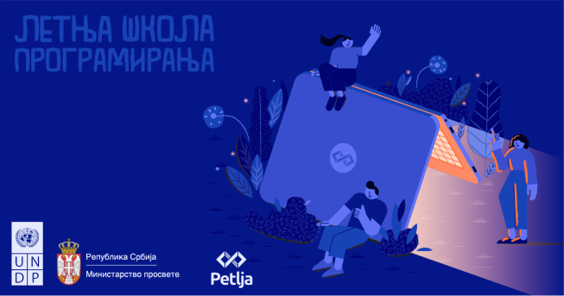
Autumn and winter are periods of the year when more time is spent indoors. This is a good reason for everyone interested in programming to use their time well while it rains outside by joining unLOOPing, a multi-month online mentorinship program.
You can find more information, available materials, and videos from lectures that took place during previous unLOOPing at the following link.
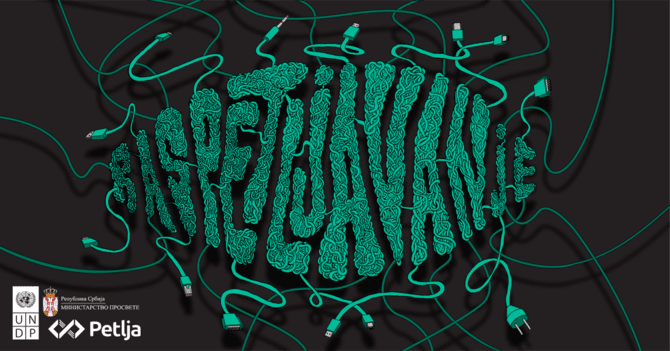
What do the currently most popular social network TikTok and programming have in common? The correct answer is the #TechTokChallenge, which was conducted in collaboration with our well-known TikTokers who tried their hand at solving algorithmic tasks.
You can find information about which tasks they solved, how they fared with programming, and all other details about the challenge on the following page.
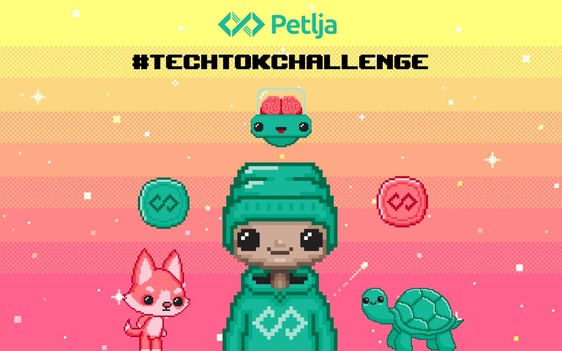
We are witnessing a significant technological revolution brought about by artificial intelligence. How artificial intelligence tools can be applied responsibly and intelligently in education is still an open question. See how we are attempting to address this in the pilot phase of developing a new functionality we have called the AI assistant, which is primarily aimed at teachers to provide additional support in lesson preparation and delivery.
You can learn more about the AI assistant we have developed in the following video:
In a world of rapid technological changes, the role of teachers is becoming increasingly important, which is why continuous support for teachers who teach computer science in primary and secondary schools through training, seminars, and workshops is of exceptional importance.
You can find more information about the last cycle of training we organized at the following links:
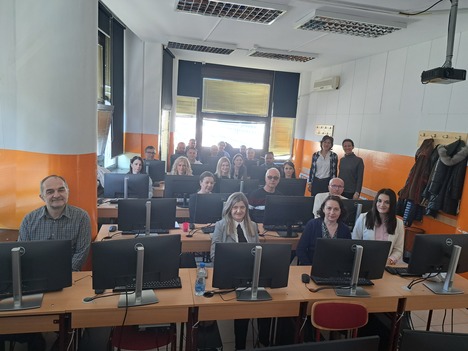
By celebrating the International Girls in ICT Day , we empower, motivate, and encourage young girls to pursue careers in the field of information technology if they so wish. This day is celebrated worldwide on the fourth Thursday of April.
You can find more about how we celebrated this important day at the following links:
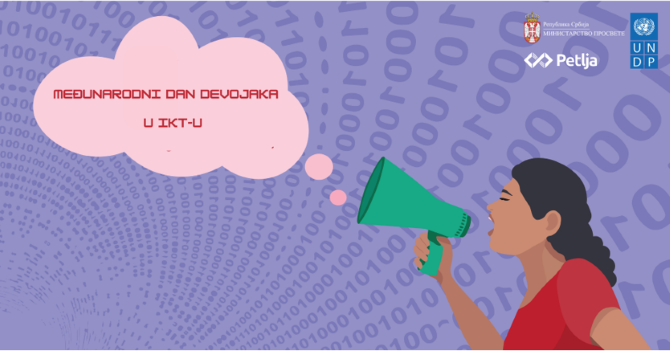
Authors
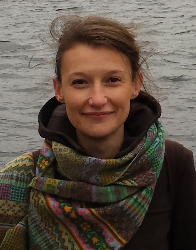
Anđelka Zečević
researcher, Mathematical Institute of the Serbian Academy of Sciences and ArtsAnđelka Zečević is a researcher in the field of natural language processing at the Mathematical Institute of the Serbian Academy of Sciences and Arts. Her research is related to digital humanities, society, and medicine, but primarily focuses on mathematical modeling of language phenomena and the development of supportive resources and tools. She graduated from the Faculty of Mathematics at the University of Belgrade, and her doctoral research was carried out in a joint project between the Faculty of Mathematics and the Microsoft Development Center in Serbia. She has had the opportunity to visit several research centers around the world and participate in a number of scientific and educational projects.
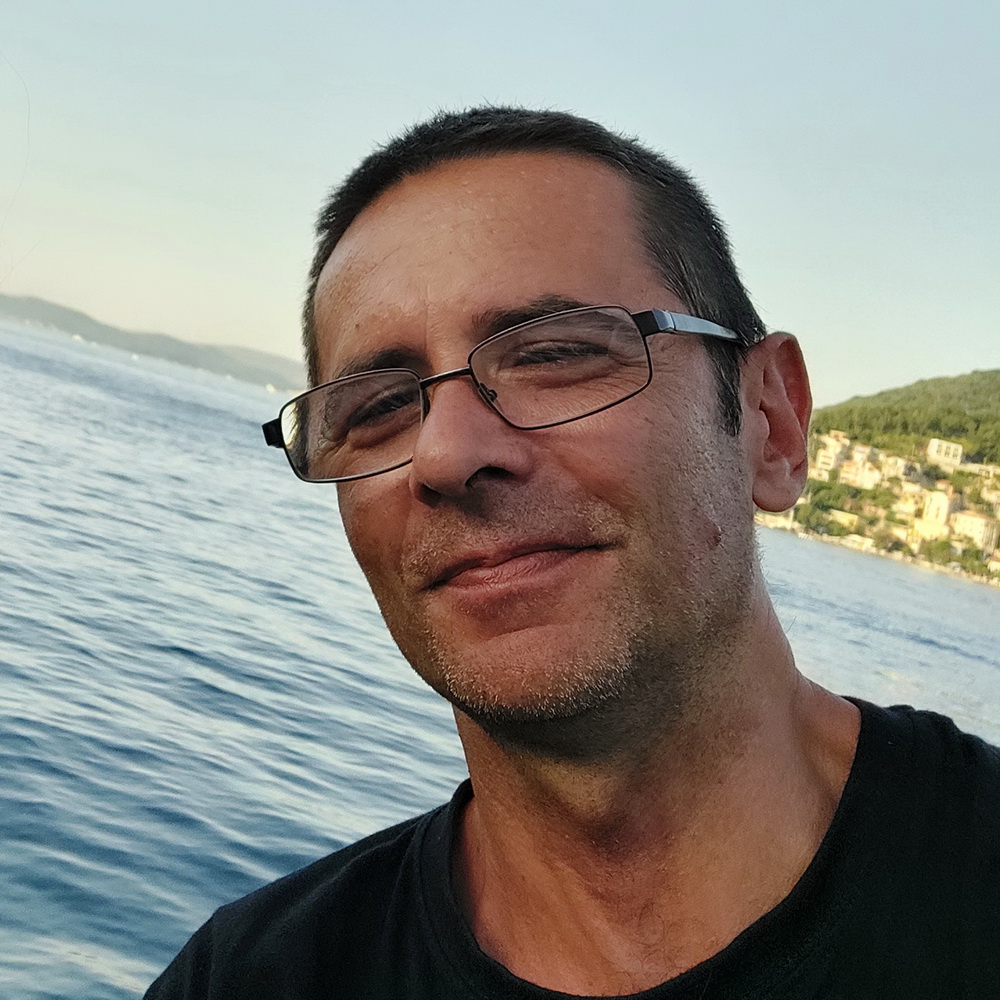
Velimir Radlovački
professor of Computer Science subjects.For the past 24 years, he has been employed at the "Nikola Tesla" School Center in Vršac as a subject teacher of Programming, Web Programming, Computer Networks, Information Systems Security, etc. As an expert, he has participated in the implementation of several international projects and created and conducted numerous teacher professional development programs, all in the field of computer science and information technology. He is the recipient of numerous awards and recognitions: Best Computer Science Teacher, Best Educator in Serbia, Best Teacher in the City of Vršac, and more.
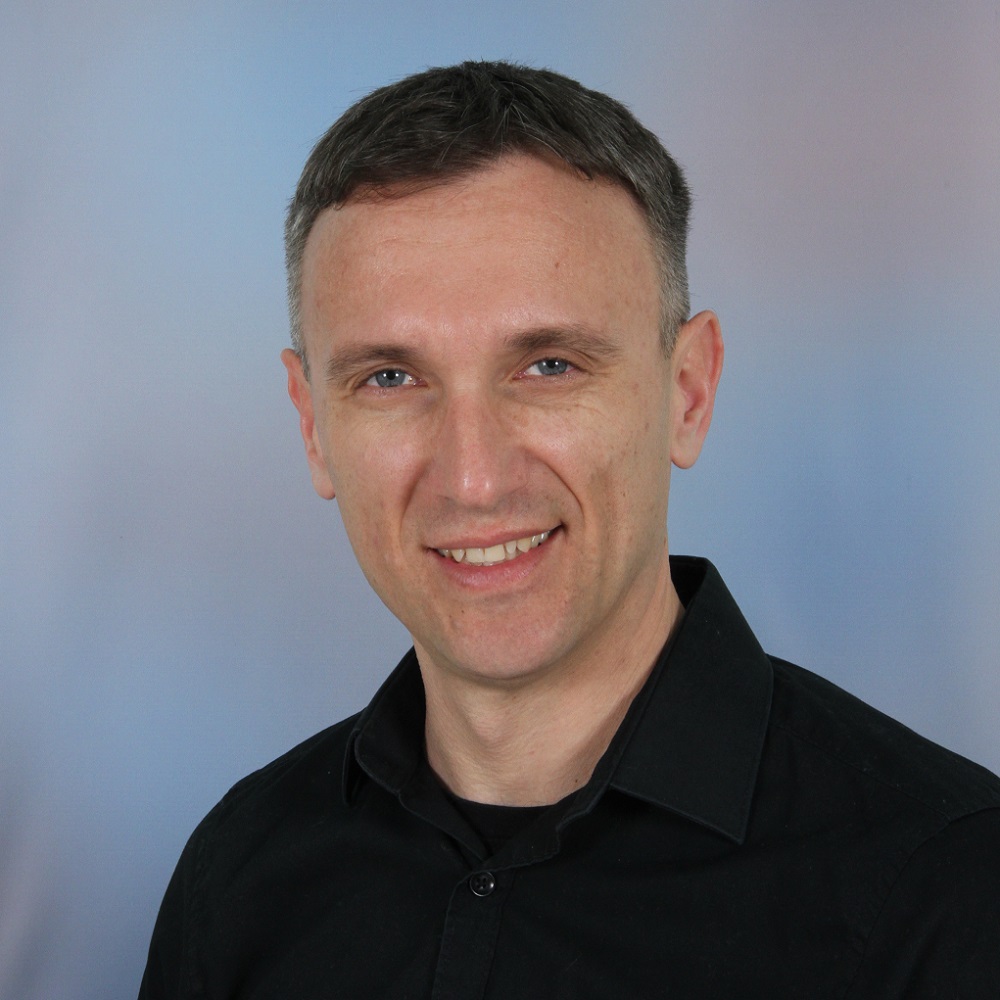
Darko Perić
teacher of the IT subject group in high schoolHe graduated in 2006 from the Faculty of Technical Sciences in Novi Sad, earning the title of Bachelor of Electrical Engineering and Computer Science – Master. He is a teacher with many years of experience in the IT subject group in high school. Previously, he worked as a software engineer. With nearly 15 years of teaching experience, he brings expertise in areas such as programming, computer systems and networks, databases, web programming, etc. He has mentored numerous students in programming competitions. He is a prominent educator for primary and secondary school teachers in the Republic of Serbia. He is fluent in English.
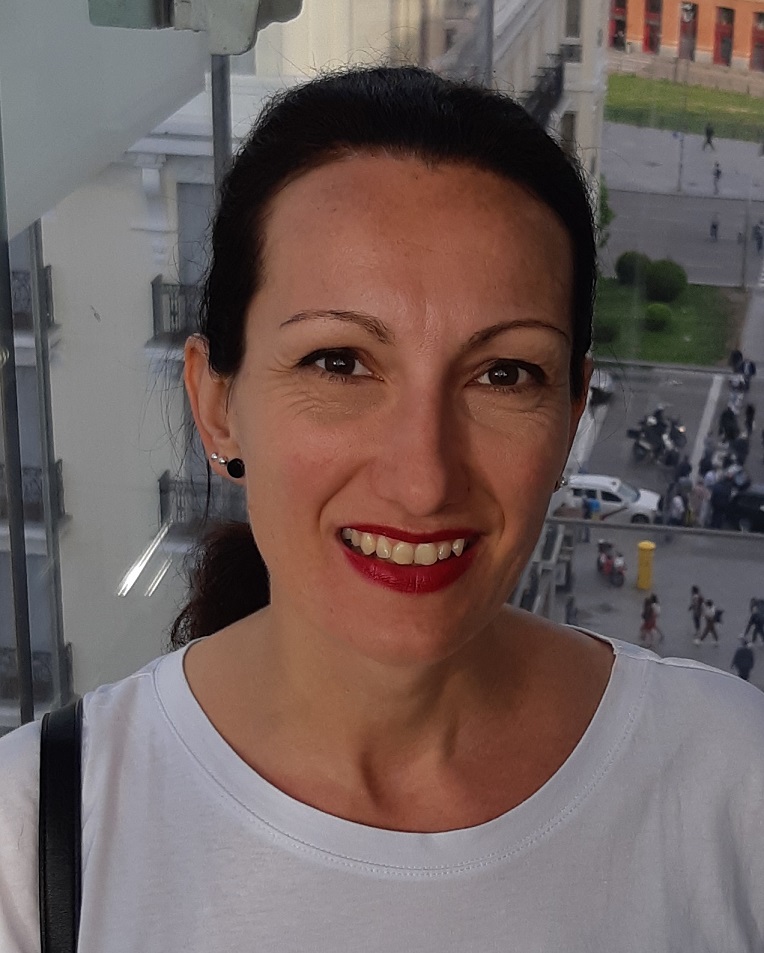
Duša Vuković
director of "Računarska gimnazija"Duša Vuković is the director of "Računarska gimnazija" . She has over 20 years of experience in teaching programming and databases at the Mathematical Gymnasium. Since 2015, she has held the title of Pedagogical Advisor. Since 2010, she has been an instructor for teacher courses within the Oracle Academy program and has led training sessions held in Serbia, Montenegro, Turkey, Austria, and the Czech Republic. She has worked on textbooks and books in the field of computer science, including "Computer Science and Informatics – for 4th Grade of High School," "Programming - Classes and Objects," and "Web Programming," among others.
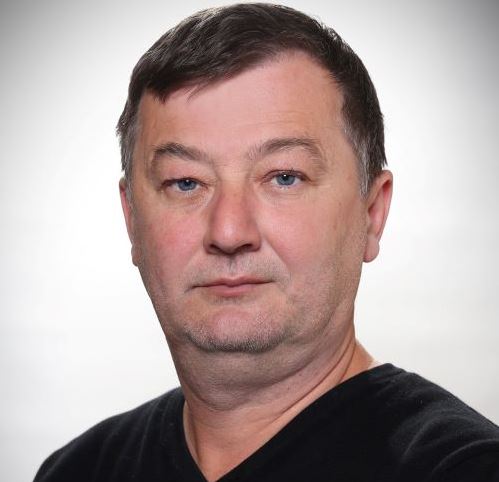
Miroljub Seničić
teacher of specialized subjects at the Technical School "Nikola Tesla" in Kraljevo since 1989He teaches specialized subjects in the Information Technology Technician program. He has 35 years of experience working in school. The subjects he currently teaches are Programming and Applied Information Technologies. He believes that continuous professional development is essential, and from the very beginning of his career, he has aimed to enhance his professional competencies. He is a long-time active member of the Community of Electrical Engineering Schools of Serbia, as well as a member of commissions for curricula and programs in the field of electrical engineering. He is a moderator in the Partners in Learning (PIL) project. He is a co-author and implementer of several seminars organized by the Institute for the Advancement of Education and Upbringing (ZUOV). He has been a long-time member of the Oracle Academy. He collaborates with the educational portal mojaskola.gov.rs and is the author of lessons on the portal mojaskola.rtsplaneta.rs. He understands that educational work with students is equally important as academic work, so he has continuously worked on his pedagogical improvement. He has earned the title of Pedagogical Advisor and is currently engaged as an external associate for the Ministry of Education in the School Administration in Kraljevo. Since 2002, he has been involved as the coordinator for student enrollment in high school for the Raška District. He enjoys passing on acquired knowledge to younger generations. His goal is to influence them so that they can use their knowledge and skills for the common good of the community and society.
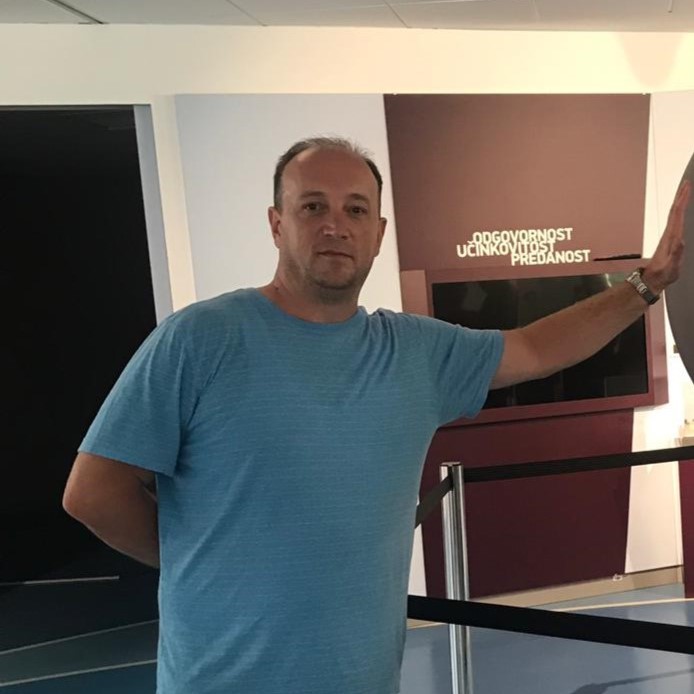
Miodrag Vučinić
teacher of specialized subjects at the Technical School "Nikola Tesla" in KraljevoTeaches specialized subjects in the Information Technology Technician program. He has 22 years of experience working in school. The subjects he currently teaches are Programming, Computer Networks and Internet Services, and Databases. He believes that continuous professional development is essential, and from the very beginning of his career, he has aimed to enhance his professional competencies. He has participated in a large number of seminars, notably including Microsoft Partners in Learning (PIL) and Oracle Academy. Over the years, he has become a co-author and implementer of several seminars organized by the Institute for the Advancement of Education and Upbringing (ZUOV). He is a collaborator with the educational portal mojaskola.gov.rs. He understands that educational work with students is equally important as academic work, so he has continuously worked on his pedagogical improvement. He has earned the title of Pedagogical Advisor and is the coordinator of the Screening Center for the Raška District, based in Kraljevo. He enjoys passing on acquired knowledge to younger generations. His goal is to influence them so that they can use their knowledge and skills for the common good of the community and society. He is married and the father of two sons, which he considers his greatest achievement. He is a fan and participant in several well-known quizzes.
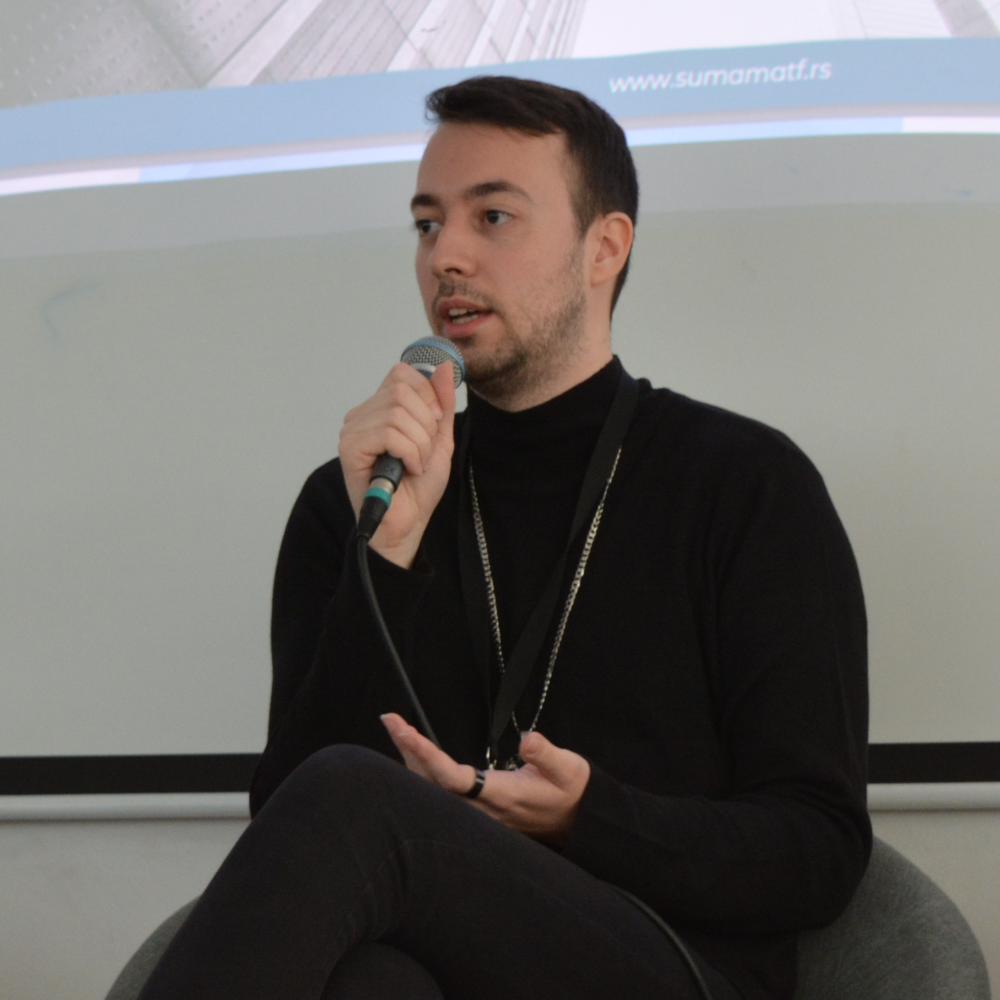
Nikola Ajzenhamer
server technologies engineer (Backend)Nikola Ajzenhamer built his career as a server technologies engineer by developing software solutions on the web, with an emphasis on creating solutions in the SaaS model and cloud computing. His expertise in the web domain is complemented by years of experience as a teaching assistant in the Department of Computer Science and Informatics at the Faculty of Mathematics, University of Belgrade, where he also completed his master's studies in Informatics. During his time at the faculty, he led courses on software development, web technologies, and databases at both undergraduate and master's levels.
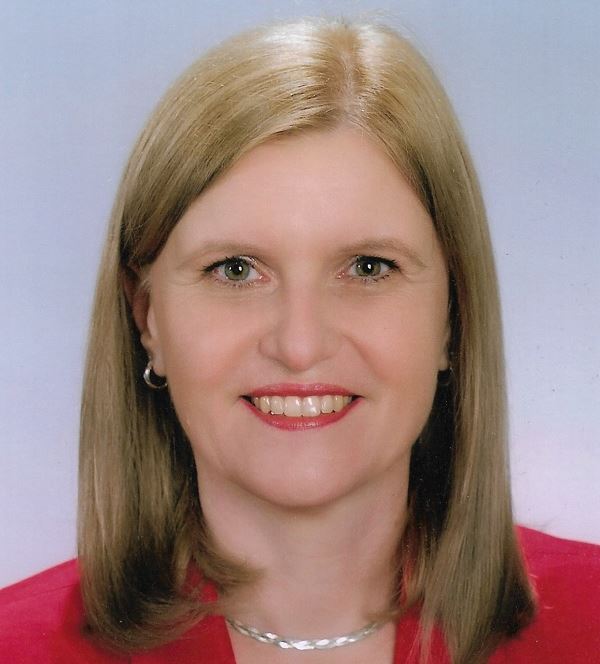
Svetlana Radlovački
teacher of electrical engineering subjects and programming at the "Nikola Tesla" School Center in Vršac.For over twenty years, she has been teaching electrical engineering subjects and programming at the "Nikola Tesla" School Center in Vršac. She is a great enthusiast of programming microcontroller platforms and the Internet of Things, and for many years, she has successfully transferred this hobby and her knowledge to her students. She is the author of several papers and manuals in this field. She has participated in several international camps focused on the application of artificial intelligence and robotics in teaching, and in 2017, she presented her section's work at the Global Forum of Innovative Teachers in Toronto (Microsoft Education Exchange). She has received several awards and recognitions for the application of innovative methods and modern technologies in teaching.

Srđan Verbić
Srđan Verbić teaches statistics and data analysis at the Faculty of Economics, Finance, and Administration (FEFA) in Belgrade. He graduated in theoretical physics and obtained both his master's and doctoral degrees in artificial intelligence. He works independently as a consultant in the fields of education and data analysis. He is a co-founder of the "Observatory of Social Innovations." He is an accredited trainer and mentor at the National Academy for Public Administration. Previously, he worked at the Petnica Research Station and the Institute for the Evaluation of the Quality of Education and Upbringing. From 2014 to 2016, he served as the Minister of Education, Science, and Technological Development in the Government of the Republic of Serbia.
Reviewers
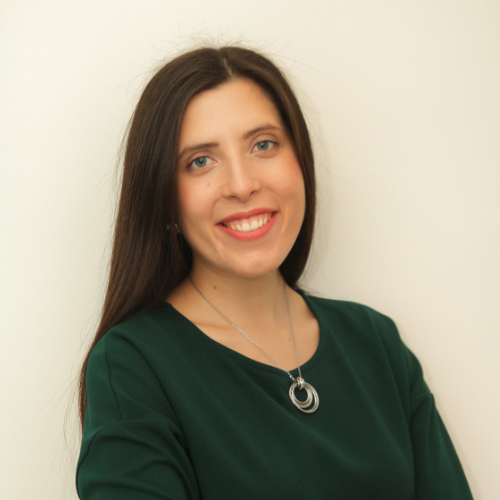
Jelena Matejić
assistant at the Department of Computer Science at the Faculty of Natural Sciences and Mathematics, Univeristy of NišJelena Matejić is an assistant at the Department of Computer Science at the Faculty of Natural Sciences and Mathematics in Niš. She started her professional career in 2019 as a researcher, and since 2021, she has held the position of assistant. She is also building her academic path as a doctoral student in the field of theoretical computer science. Her passion for teaching has been recognized in both regular teaching activities and in the project of the Ana and Vlade Divac Foundation, where she has been teaching web programming courses since 2019. She actively participates in workshops, conferences, projects, and events dedicated to popularizing science and education.
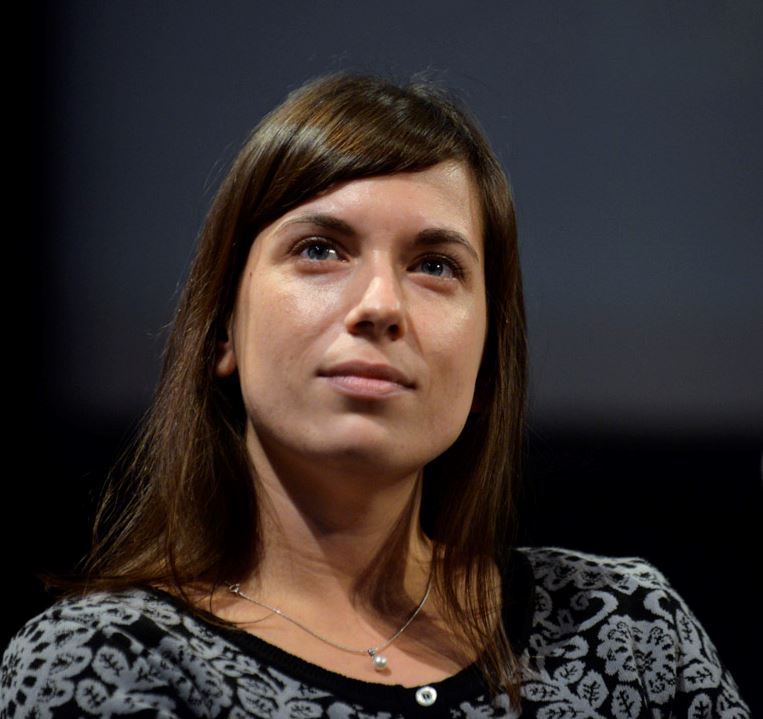
Nevena Buđevac
associate Professor at the Faculty of Teacher Education in BelgradeShe teaches multiple subjects in the field of educational psychology. She obtained her PhD in 2013 from the Department of Psychology at the Faculty of Philosophy in Belgrade. Her research focus is on learning opportunities through peer social interaction and the development of argumentative thinking. She is involved in several international projects that address education at various levels, from preschool to university. She has reviewed multiple textbooks for elementary schools and universities. She is the author of more than 20 scientific papers and one textbook for students at the Faculty of Teacher Education.
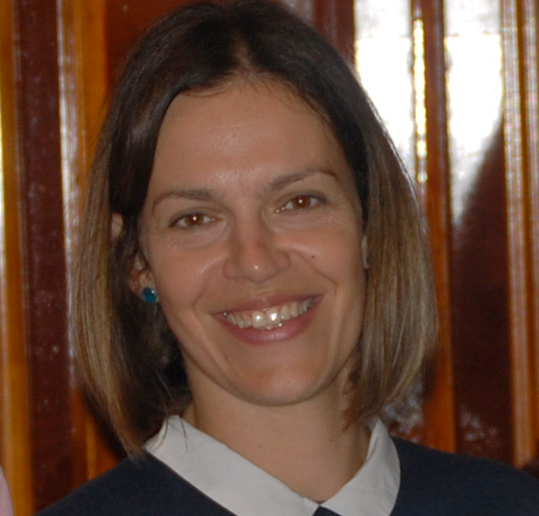
Vesna Marinković
assistant professor at the Faculty of Mathematics, University of BelgradeVesna Marinković is an assistant professor at the Faculty of Mathematics, University of Belgrade, where she earned her Ph.D. in automated reasoning in 2015. Her primary research area is automated reasoning in the field of geometry. She is a co-author of numerous scientific papers and a speaker at several conferences in the field. She has a great passion for algorithms and has many years of experience teaching various algorithmic courses at the Faculty of Mathematics, where she fosters algorithmic thinking in her students.
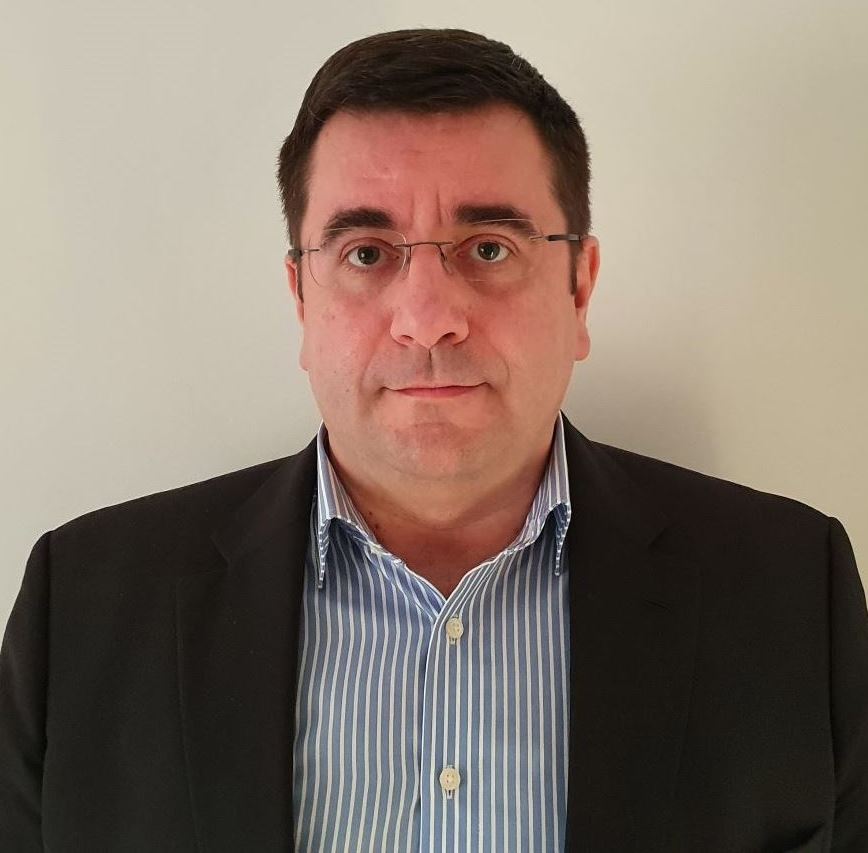
Miroslav Marić
Full Professor at the Department of Computer Science and Informatics at the Faculty of Mathematics, University of BelgradeMiroslav Marić has been working at the Faculty of Mathematics since 2002. He is the author of more than 130 scientific publications. His areas of scientific interest include artificial intelligence, computational intelligence, mathematical optimization, methodology of teaching mathematics and computer science, educational software, etc. He received the Svetosavska Award in 2021 for his overall contribution to the development of scientific research. He is the recipient of the Personality of the Year award at the EdTech Western Balkan Awards for 2021. He has been the president of the Mathematical Society of Serbia since 2021. He has been leading the GeoGebra Center in Belgrade since 2011.
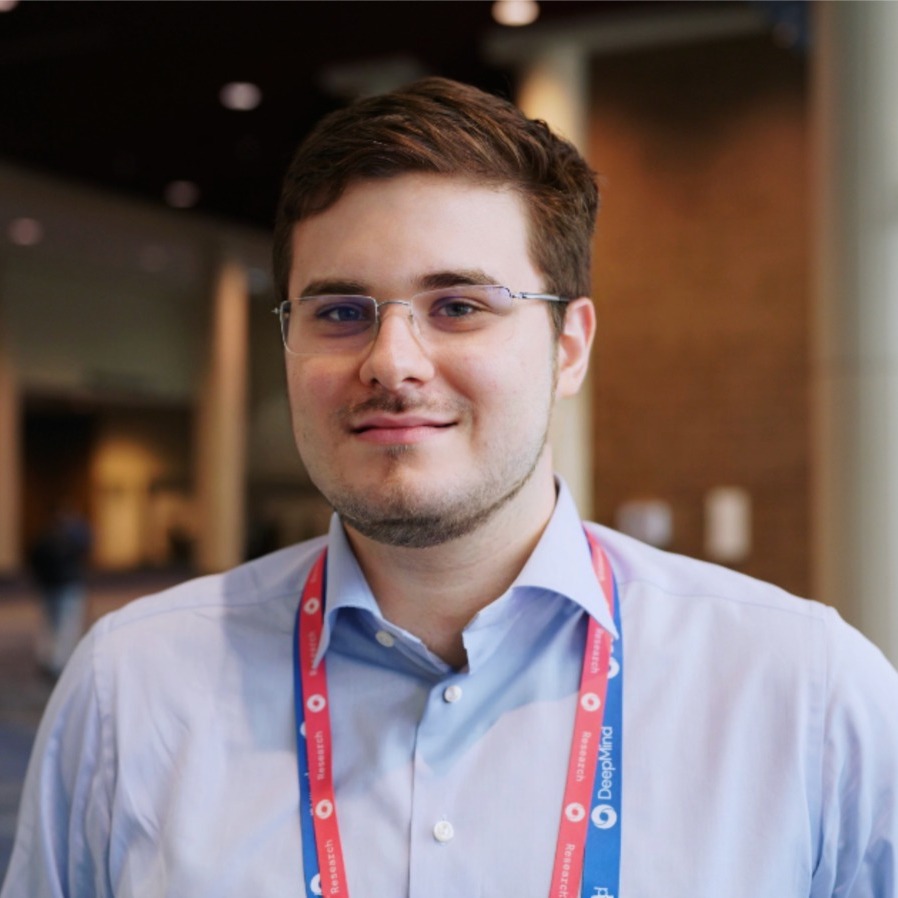
Petar Veličković
research scientist, Google DeepMind / Associate Professor, University of CambridgePetar Veličković is a researcher-scientist at Google DeepMind and an associate professor at the University of Cambridge. He earned his Ph.D. in Computer Science at Trinity College, University of Cambridge. His research focuses on geometric deep learning, particularly graph machine learning and algorithmic reasoning. Petar's research has been utilized in significantly improving travel time predictions in Google Maps, assisting mathematicians in proving new theorems, and discovering new football strategies in collaboration with Liverpool Football Club.
Proofreaders
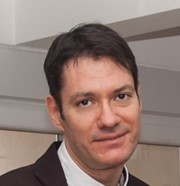
Predrag Ivanović
proofreader and editorPredrag Ivanović, a graduate master of general literature and literary theory, has been proofreading various texts in Serbian, ranging from fiction to textbooks and scientific papers, for several decades. He started this work at the publishing house "Plato" and continued collaborating with all major Serbian publishers and the Research Station "Petnica." With over thirty years of experience in proofreading, editing, and preparing publications for printing, he brings expertise in clarity of expression, language standardization, and additional verification of the meaning of the written word. He believes that everyone has the right to their own unique linguistic expression and is known for helping each author find their distinctive voice.
Trainers
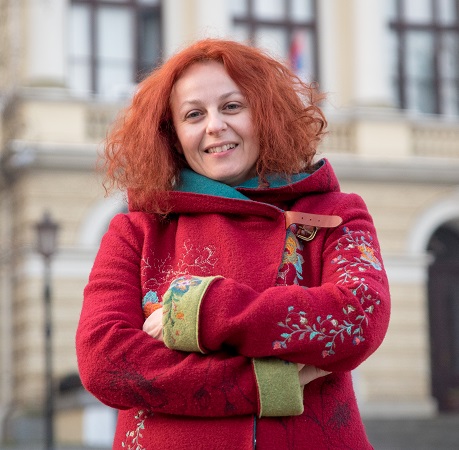
Katarina Veljković
Graduated mathematician in computer science and informatics. She is currently employed at the First Grammar School in Kragujevac, working with talented students in mathematics and computer science. She has been named the best educator in Serbia and has made it into the Top 50 teachers in the world. She has won numerous awards in the field of education and is the author and implementer of several professional development programs in distance learning and the application of ICT in teaching. She is a co-author and reviewer of several textbooks for computer science and informatics education. She is one of the pioneers of using Lego robots and robotics in general in the educational process. Her lesson plan using a robot in teaching, "Programming LEGO NXT Robot in Microsoft Robotics Studio," won first place at Microsoft's Innovative Teacher Forum in Paris in 2007. She is a member of working groups for developing curricula for primary and secondary education in the field of computer science and informatics.
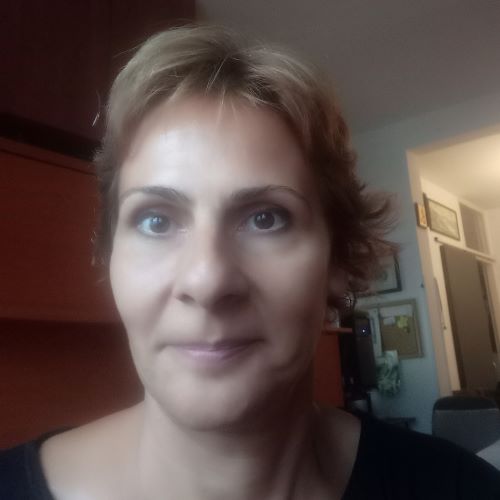
Marija Pantović
Marija Pantović is a teacher of computer science subjects at the Gymnasium in Smederevo. Previously, she briefly worked as a mathematics teacher at the Primary School "Branko Radičević," also in Smederevo. With 25 years of experience, she brings expertise in teaching both children and adults, whether in person or online. She is involved in the creation and distribution of digital materials, exercises, and practical tasks suitable for teaching computer science and programming in a regular gymnasium, as well as in a specialized IT department.

Tatjana Zlatković
Tatjana Zlatković is a graduate engineer of organization for information systems. She has been working as a computer science teacher at a gymnasium for 25 years. Her dedication to applying innovative teaching methods and creating a dynamic classroom environment captivates students and colleagues alike. Aiming to make computer science accessible and exciting, Tatjana utilizes modern technology and interactive approaches to enhance students' understanding and engagement. With rich experience in implementing digital tools and resources, Tatjana focuses on improving classrooms through innovations that help students better grasp the material. Her enthusiasm for sharing knowledge has inspired many students to love computer science and pursue further education.
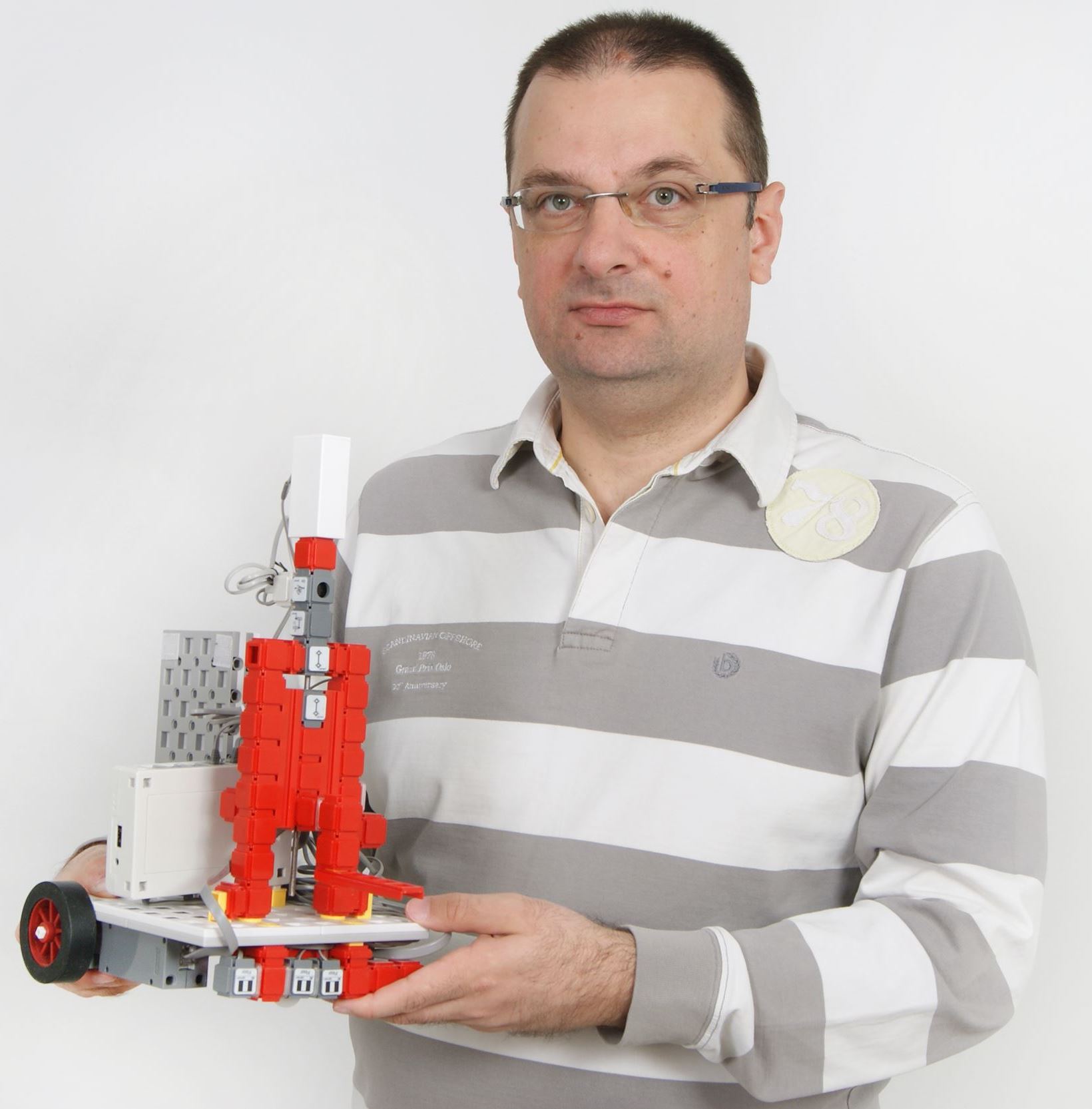
Đura Pađan
He graduated from the Faculty of Mechanical Engineering in Belgrade in 2000 with a specialization in automatic control. His thesis topic was: “Speed Control of a DC Motor Using Analog Techniques.” He obtained his master's degree in the same field in 2005 with a thesis on: “Pneumatic Valves with Width-Modulated Control Algorithms.” Since 2001, he has been a teacher of technology and computer science at the “Vladislav Ribnikar” Primary School. He teaches technology and computer science in bilingual classes. From the very beginning of his career, Đura recognized opportunities to improve the curriculum and has been working on it. His approach is based on finding a balance between practical and theoretical work. He introduced electronics, programming, and interface technology into his teaching long before they appeared in the curriculum. As a result, Đura has students who eagerly attend classes and enjoy their work. Throughout his time at the school, he has developed computer-controlled machine models with his students, which are essentially robots that operate autonomously. He believes that teaching is a two-way street where everyone is both a teacher and a learner. Understanding the teaching profession in this way is crucial for success, as teachers and students are equal partners in the shared project called lifelong learning.
Ilustrators
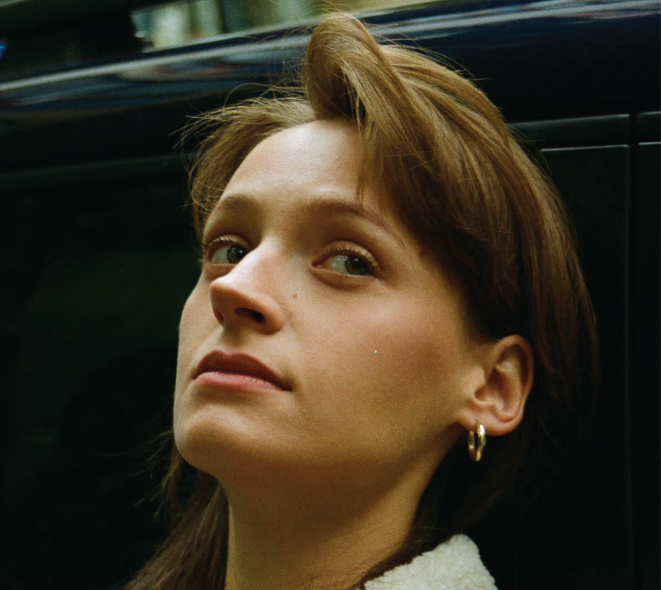
Milica Erkić
consultant for Graphic Design and Visual SolutionsMilica Erkić graduated from the Faculty of Fine Arts in Belgrade, majoring in new media. She also enrolled in master's academic studies at the same faculty. She has exhibited in group exhibitions at the Youth Center of Belgrade, the Cultural Center of Belgrade, the Gallery of the Belgrade Fortress, the FLU Gallery, and the Künstlerhaus in Vienna. Her works are in the fields of conceptual art, art theory, photography, graphics, digital graphics, and illustration. Since 2022, she has been working for UNDP Serbia as a national consultant for graphic design and visual solutions with the Petlja team.

Sava Bojanić
design consultantSava Bojanić is an experienced designer and illustrator. He is completing his studies at the Faculty of Computer Science, majoring in Multimedia Design. He has worked as a design consultant for the Petlja Foundation. With several years of experience in design and illustration, he brings expertise in illustrating various themes and visuals, as well as adapting new ideas to the required visual identity. His interesting and diverse illustrations enrich and bring life to various projects, making them accessible to a broad audience. Notable for his work on projects such as rasPETLJAvanje, he contributes his creativity and imagination to Petlja.
